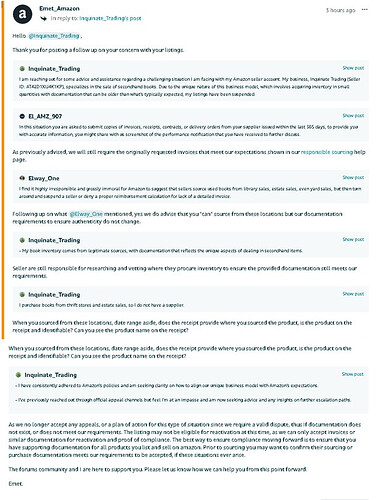I sell used books through Amazon FBA. I received an authenticity complaint for one item, and now I can’t list an estimated 85% of books.
Amazon wants an itemized invoice/receipt for the book, but I do not have this type of invoice available because I buy books at thrift stores, library sales, and estate sales. It is generally accepted that used book purchases do not come with the type of supply chain documentation standard for new products. Amazon’s seller training materials encourage sellers to source used books from these sources (How to Sell Books Online in 2024: Step-by-Step Guide)
I have been sending appeals clarifying the unique nature of used book sales and the concept of fair use, but I keep receiving the same (likely automated) performance notifications. Nothing is listed on my Account Health page, and my Account Health has not gone down. I am trying to escalate to a human. At this point it seems a non-existent itemized invoice is the only answer.
I see this problem affecting more used booksellers every day. Amazon understands the nature of used book sales, so what are they doing? Do they want to get rid of third-party booksellers? Did a major publisher sue Amazon? I don’t understand the reason behind what’s happening.
